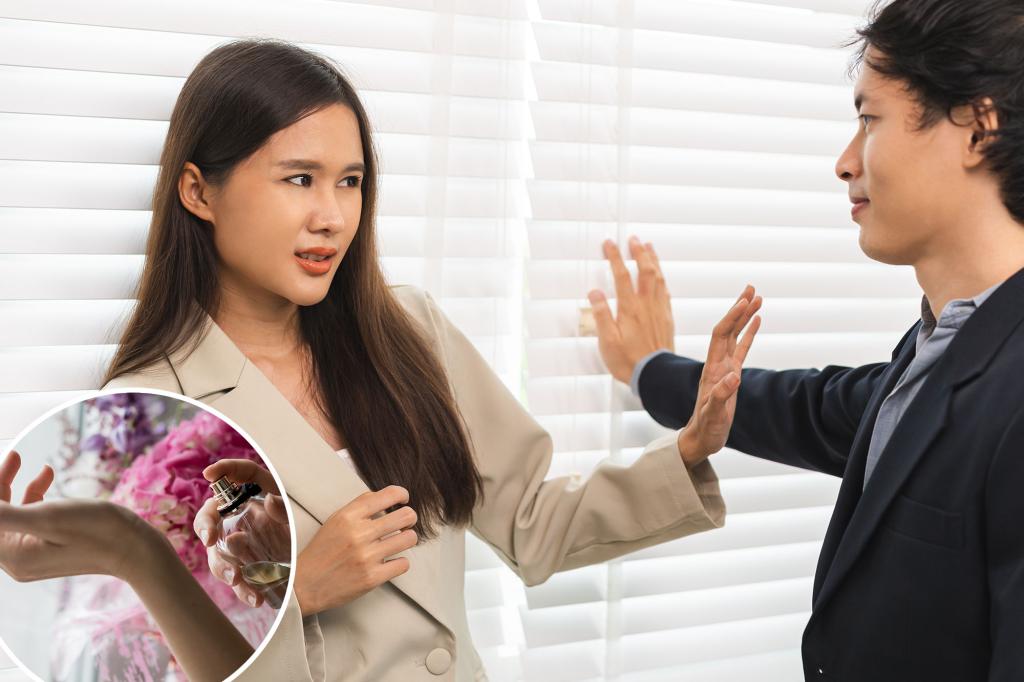Perfume as a Shield: Women’s Unique Strategy to Deter Cheaters
In a fascinating twist on traditional perfume use, women around the world are adopting fragrances not to attract attention but to deliberately repel potential cheaters. This emerging trend represents a creative response to dating fatigue and concerns about infidelity. “Do you want to smell so good that men are literally chasing you down the street just to ask what you’re wearing?” asked NYC-based beauty influencer Sofya to her nearly 200,000 TikTok followers. “Neither do I,” she concluded, in a post tellingly titled “Perfumes that men CANNOT STAND.” This perspective reflects a growing sentiment among women who are redefining beauty standards and dating approaches on their own terms, prioritizing personal comfort and safety over traditional expectations to appear desirable at all costs.
The movement gained significant momentum when content creator Mikee responded to comedian Rick Glassman’s claim that “Men don’t want you to wear perfume. We don’t like it. It smells like poison.” Rather than accommodating this preference, Mikee enthusiastically doused herself with perfume, declaring to her audience, “You hear that, ladies!!! Perfume is man repellent!!!” This playful defiance resonated with thousands of women online, who embraced the concept with humor and strategic thinking. One commenter insightfully noted, “I think it’s because their wives can smell it later,” highlighting how perfume might serve as evidence of infidelity. This observation transforms perfume from a beauty product into a clever tool for filtering out potentially unfaithful partners before relationships even begin.
Women participating in this trend have developed sophisticated knowledge about which scents tend to appeal to men versus those that create distance. According to online discussions, men typically prefer sweet fragrances like vanilla, while finding woody, smoky, and spicy notes less appealing. Armed with this information, some women deliberately choose the latter category when heading out. One particularly innovative approach comes from a woman who wears men’s cologne before nights out, describing it as a “life hack” that effectively communicates “don’t approach” to unwanted admirers. These strategic choices reflect women’s agency in controlling social interactions and creating boundaries in dating environments that can sometimes feel hostile or unsafe.
The enthusiasm for this approach is evident in the comments sections of related videos, where women express both humor and relief at discovering this protective strategy. “Good thing I now know what to wear… to keep those creeps away,” wrote one viewer under Mikee’s post. Another lamented with comic exaggeration, “F—k! I hate spending money on perfume, now I need ten!” These responses reveal that beyond the practical application, the idea of “man-repellent” perfume provides a sense of community and shared experience among women navigating similar challenges in dating and social settings. The collective enthusiasm suggests that many women find comfort in having additional tools to filter interactions, particularly in an era where dating apps and social media have significantly changed how people meet potential partners.
Interestingly, perfume isn’t the only beauty product being repurposed as a cheater-detection mechanism. Glitter has emerged as another brilliant strategy in this arsenal of protective measures. Beauty enthusiasts like Dalia Grande have begun applying glitter to their bodies before dates, particularly when meeting men who might be old enough to be married. As Grande explained in her viral video that garnered over 24 million likes, “Going on a first date because I’m at the age where they could be married (married men HATE glitter)… Just to be safe.” The genius of this approach lies in glitter’s notorious properties: it’s virtually impossible to wash off completely and transfers easily from person to person, potentially leaving incriminating evidence that a cheater would struggle to explain away.
This trend of using beauty products as protective mechanisms rather than purely for enhancement represents a significant cultural shift in how women approach dating and self-presentation. Beyond the practical applications, there’s something profoundly empowering about reclaiming these products for purposes that serve women’s interests directly. The movement suggests a broader rejection of the idea that women’s appearance should primarily cater to male preferences. Instead, these women are creating their own rules, finding humor in dating challenges, and building community around shared experiences. Whether using perfume with woody notes or strategically applied glitter, they’re sending a clear message: their beauty choices serve their own needs and boundaries first. For many women, the knowledge that certain scents might keep potential cheaters at a distance isn’t just useful information—it’s a small act of revolution in the complex world of modern dating.














